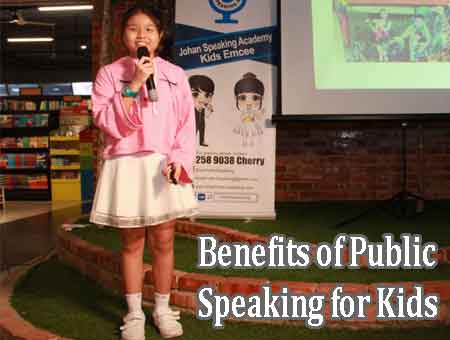Children can get of stage fright very easily if they get right kind of support and encouragement from parents. Read on to know what parents can do to help children get rid of stage fright.It has been often observed that that many children who are normally friendly and intelligent freeze the moment they get on stage. This is a problem which has deep psychological roots and is connected to the vestiges of fear psychosis and low level of confidence in the mind. As a parent it is very important to understand your role in helping your children to get rid of stage fright. Here is what you should know about helping your children get rid of stage fright.
The Nature and Symptoms of Stage Fright
Stage fright has often been described by many kids as a “nervous hollow feeling in the middle of the stomach†while others describe it as “unnatural contraction of the throat and a feeling of deep anxietyâ€. There are many kids who feel anxious whenever they are asked to perform in front of others and when they are put on a stage they psychologically fall to pieces. Scientifically, stage fright has been classified as a deep rooted fear in the mind of a child who is unable to perform in front of audience. This fear is also one of the many types of recognized phobias in the world.
There are many tell-tale signs of stage fright that you need to look out for. You can get to know whether your kid suffers from stage phobia or stage fright when
- Your child’s hands tremble whenever he or she gets up on stage
- Hands get sweaty and sticky
- The heart beat rate increases whenever he or she faces audience
- There are bouts of heavy breathing or breathless spells or both
- Mouth goes dry completely when your child tries to speak-up
- Your child constantly complains of sickness and stomach cramps on stage
Understand the Root of the Problem
Child psychologists say that the way to move ahead in curing any type of phobia or fear psychosis in children is to understand the root of the problem first. You have to talk to your child gently, probingly to understand whether your child is not confident about performing on stage or thinks that he or she is a complete failure. It is also possible that your child negatively compares to other children and therefore suffers from inferiority complex. The problem could also be a
learning disability or
speech impairment wherein the child finds it difficult to memorise lines, pronounce them or enact them. Concern about physical appearance may also make your child suffer from stage fright.
Preparation is the Key
The old adage of “practice makes perfect†holds true completely wherever the issue of stage fright is concerned. This basically means that if memory is the root cause then help your child practice and memorise as many times as required. If according to you it is under-confidence which is the root cause then practicing in front of the mirror is something which can help your child. Simply sitting through with your child and supporting innumerable practice sessions while providing him or her with positive feedback and encouragement from time to time is going to work wonders in helping your child overcome a major part of stage fright.
Positive Reinforcement
Positive feedback from a parent or peers can help a lot in dissolving the
fears of a child. The positive feedback can be displayed by showing the evidence of recent performance improvement v/s past performances. You can actually use recorders, video tapes etc; to record the recent
improved performance of your child as this will help your child imbibe the fact that there has been substantial improvement. Support and help from other children of contemporary age groups will also help a lot in overcoming stage fright.
Parents can play a very important role in helping children overcome stage fright. Children cannot get the motivation and encouragement that parents can provide to them from anywhere else. Therefore, parents must make sure that they be by the side of their children when it is about helping children get rid of stage fright.
Why do some children cope with stage fear? What can parents do to help children deal with stage fright? How to prevent stage fright in children? Discuss here. 
























